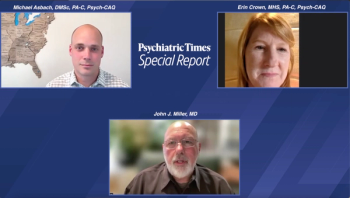
Deciphering the Software Code of Brain Neurons: Epigenomic Profiling in Schizophrenia
Research uncovers the mechanism underlying the development of psychotic symptoms in schizophrenia and bipolar disorder. More in this video with Viviane Labrie, PhD, lead author of a recent study.
RESEARCH UPDATE
Epigenetic marks are like the software code in brain neurons that affect their activity, signaling, and survival. We are at the dawn of targeting “a cluster of epigenetic marks that ratchets up dopamine production while simultaneously scrambling the brain’s synapses, the information hubs that transmit rapid-fire neural messages responsible for healthy function.
"The result is a catastrophic shake-up of the brain’s organization and chemical balance that fuels symptoms of psychosis,” says Viviane Labrie, PhD, lead author of a study published in Nature Communications, “
The study is important because it uncovers the mechanism underlying the development of psychotic symptoms in schizophrenia and bipolar disorder. Dopamine is a neurochemical that for a long time has been known to cause psychosis, but what events in brain neurons cause the abnormal dopamine signaling is unknown.
“We found that in neurons of patients with psychosis there is an excessive activation of an area that controls the key enzyme for the production of dopamine, tyrosine hydroxylase. This activation occurs through changes in epigenetic marks (which occur on DNA and control whether genes turn on or off),” said Dr Labrie, Assistant Professor at Van Andel Research Institute (VARI) in Grand Rapids, MI.
“Our study suggest that activation of the region could simultaneously cause too much dopamine activity, while limiting the function of gene important for synaptic structure,” she says. “This mechanism could explain why individuals that develop psychosis also have a simultaneous loss in neuronal synaptic structure. The significance is that this work provides evidence for a new mechanism for dopamine dysregulation in psychotic disorders.”
Further study of this area could provide clues to who is a risk of developing psychosis and how to better treat these diseases. For more on this topic, see
Newsletter
Receive trusted psychiatric news, expert analysis, and clinical insights — subscribe today to support your practice and your patients.







